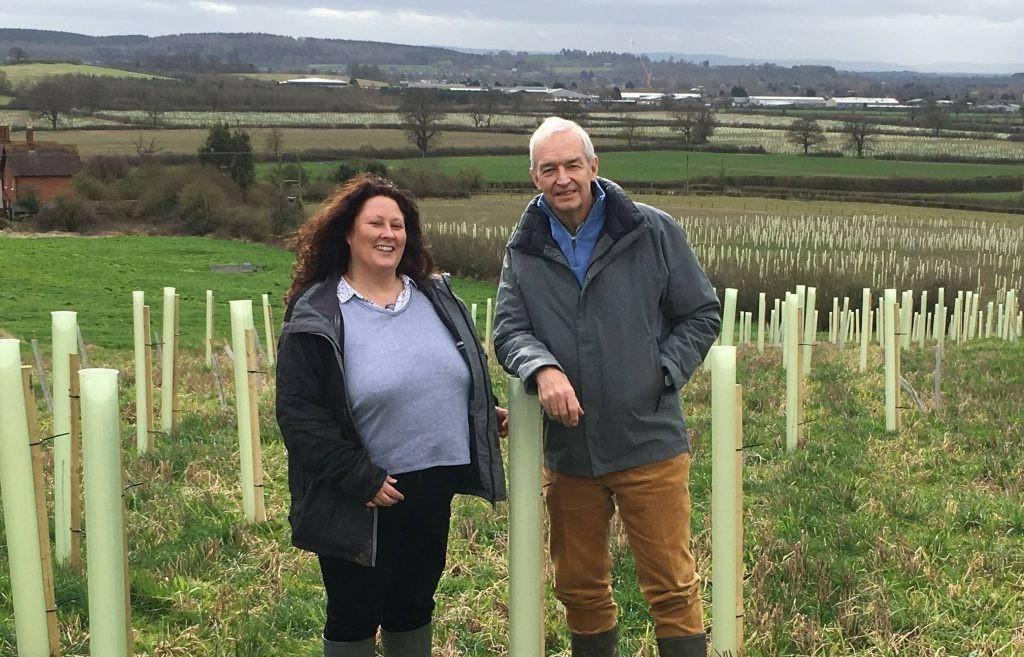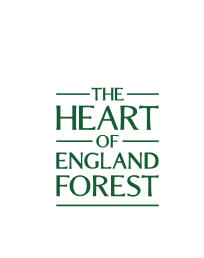
Beth Brook - One year on, the progress continues
To celebrate the end of her first year in charge at the Heart of England Forest, we caught up with Chief Executive Officer Beth Brook for an update on the progress being made by the team.
What were your first impressions when you joined the Heart of England Forest?
“I suppose the first thing that hit me was the sheer scale, and the enormous aspiration that goes with it. This is not just a small group of trees, but more than 6,000 acres from the North Cotswolds to South Birmingham. This is a really, really important resource for the whole of the West Midlands and there’s so much we can do with it to encourage more wildlife and more people to come and enjoy it.”
What were your first priorities when you took over?
“One of my first priorities was to look at the volunteering programme and support the team to develop this, making sure that we have a proper structure to give volunteers a high-quality experience and then expand the volunteering to offer a range of activities. For people who love practical forest work there’s plenty going on from tree planting to summer forest maintenance jobs. We’re now expanding this, and have already provided training on reptiles, butterflies and hedgerows to support volunteers to carry out biodiversity surveys. All these allow us to monitor the Forest closely, create a baseline and measure our progress to see the positive changes that are happening.”
What were the areas that you identified to improve the lives of people throughout the Forest?
“Whilst it’s a great place to come and walk or bring your dog, there are some other obvious benefits the Forest brings. Firstly, the environmental benefits, which have a positive effect on the whole country and particularly the West Midlands. We are the ‘lungs’ of the region, mopping up the excess carbon dioxide, and we also contribute to improving local water quality, flood management and give people somewhere to come and escape from busy city life.
I’m also really keen to work with partners to maximise the health benefits – both physical and mental – of the Forest. We have already started working with Stratford Cycling Club and host the annual Forest Marathon, but we are also looking at ‘informal health’, perhaps by measuring out step counts for visitors, working with GP surgeries to look at walking prescriptions, and linking in with other groups such as dementia organisations. The tree nursery is a perfect area – providing a safe environment for people to go back to doing something they may have done in their younger days, and tasks can be tailored to each individual’s ability. We are also working with Mencap, offering work placements, and with the Prince’s Trust to support vulnerable young people in developing both confidence and tangible skills that can go into their CV’s.
We have started our new internship programme and will soon be recruiting for a new forestry apprentice. The apprenticeship is ideal for those interested in an entry level career in forestry, while the internships are designed as 12month paid placements for those undertaking college or university courses and looking to develop their practical skills in forestry. We will also offer high quality work experience placements.”
All of the above cover the environmental and social benefits of the Forest – I know you’re also keen to tie these in with economic benefits for the area?
“As the Heart of England Forest is a destination, we are looking to ensure that we maximise the economic benefits for local businesses. By working with local hotels, shops, restaurants and attractions we aim to encourage people to stay in the area longer by working in partnership with other local businesses. For example, we are investigating opportunities with the National Trust at Coughton Court – with the Forest forming part of the vista around the property, there are opportunities to promote the benefits of cultural and landscape heritage.”
Finally, what’s next?
“We now know what our priorities are and the direction we are travelling in. The volunteering and staff training have a firm base and we are looking forward to formal education and skills programmes coming on stream which will span Early Years through primary, secondary, further and higher education. Informal education will also play a big part, too, and we will be looking at other ways to bring people in to enjoy the Forest – from yoga retreats to photography courses or artists’ weekends and many other ideas.
So, sum up the next year at the Heart of England Forest in a sentence?
“Simple. More people, more wildlife, more Forest!”



